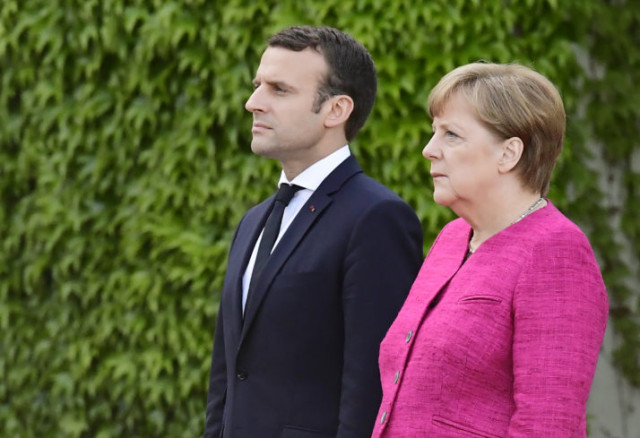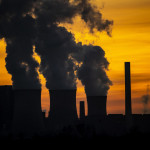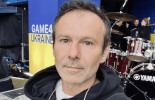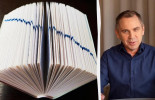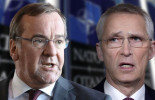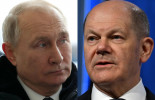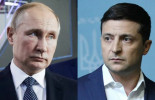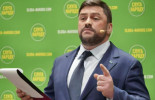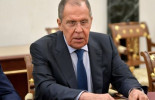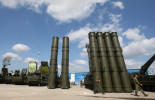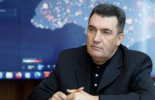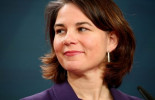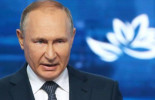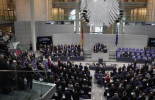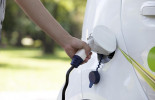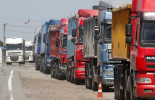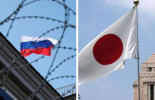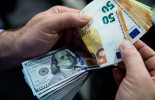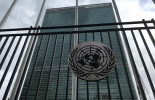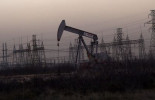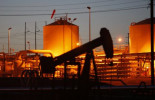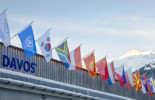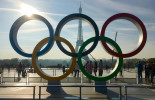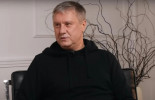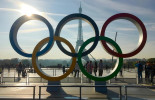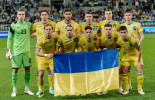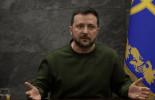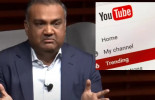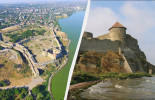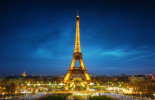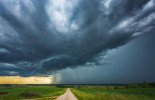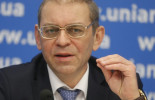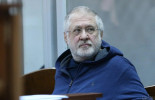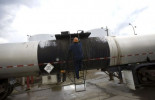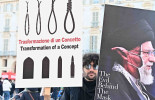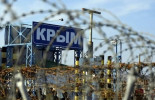 WhatsApp додав дві корисні функції, які спростять життя користувачам
WhatsApp додав дві корисні функції, які спростять життя користувачам
 Росія посилила штурми під Авдіївкою: Генштаб розкрив ситуацію на фронті
Росія посилила штурми під Авдіївкою: Генштаб розкрив ситуацію на фронті
 "Чоловіки 30+, реалізовані": Анна Трінчер розповіла про побачення після розлучення
"Чоловіки 30+, реалізовані": Анна Трінчер розповіла про побачення після розлучення
 Детонатор спрацював від сигналу GPS: росЗМІ розкрили, як і чим підірвали Кримський міст
Детонатор спрацював від сигналу GPS: росЗМІ розкрили, як і чим підірвали Кримський міст
 "Євробачення-2024": Україна знову піднялася в букмекерському списку потенційних переможців
"Євробачення-2024": Україна знову піднялася в букмекерському списку потенційних переможців
 Росія готує наступ на Харківську та Сумську області, - ГУР
Росія готує наступ на Харківську та Сумську області, - ГУР
 РФ замінює західні компоненти в ракетах на власні: аналітики вказали на важливий нюанс
РФ замінює західні компоненти в ракетах на власні: аналітики вказали на важливий нюанс
 ЗСУ "мінуснули" понад 1200 окупантів: втрати РФ наближаються до критичної лінії
ЗСУ "мінуснули" понад 1200 окупантів: втрати РФ наближаються до критичної лінії
 Годжес жорстко висловився про повернення з ЄС деяких українців: хто має бути в ЗСУ
Годжес жорстко висловився про повернення з ЄС деяких українців: хто має бути в ЗСУ
 Настя Каменських уперше заговорила про стосунки з молодим співаком
Настя Каменських уперше заговорила про стосунки з молодим співаком
 Старт роботи F-16 в Україні: у ЗСУ висловилися про перший бойовий виліт
Старт роботи F-16 в Україні: у ЗСУ висловилися про перший бойовий виліт
 У США несподівано помер вже другий інформатор про дефекти літаків Boeing
У США несподівано помер вже другий інформатор про дефекти літаків Boeing
 Відомий український актор про службу в лавах ЗСУ: "Відчуваю, що я необхідний"
Відомий український актор про службу в лавах ЗСУ: "Відчуваю, що я необхідний"
 Росія пошкодила половину енергетичної інфраструктури України, - Кулеба
Росія пошкодила половину енергетичної інфраструктури України, - Кулеба
 Росія не запрошена на Саміт миру "на даному етапі", - уряд Швейцарії
Росія не запрошена на Саміт миру "на даному етапі", - уряд Швейцарії
 Макрон сказав, як діятиме Франція в разі прориву фронту в Україні
Макрон сказав, як діятиме Франція в разі прориву фронту в Україні
 Можлива катастрофа: окупанти пускають дрони поблизу реактора ЗАЕС, - ГУР
Можлива катастрофа: окупанти пускають дрони поблизу реактора ЗАЕС, - ГУР
 На Великдень погода в Україні зміниться, - синоптик Діденко
На Великдень погода в Україні зміниться, - синоптик Діденко
 Що станеться з вашим тілом, якщо пити каву без кофеїну: п'ять цікавих змін
Що станеться з вашим тілом, якщо пити каву без кофеїну: п'ять цікавих змін
 Окупанти випалюють Часів Яр: AP показало моторошні кадри знищеного міста
Окупанти випалюють Часів Яр: AP показало моторошні кадри знищеного міста
 alyona alyona і Jerry Heil показали свій номер на "Євробаченні-2024" (відео)
alyona alyona і Jerry Heil показали свій номер на "Євробаченні-2024" (відео)
 "Може померти у будь-який момент": Віктор Павлік готується до складної операції
"Може померти у будь-який момент": Віктор Павлік готується до складної операції
 "Мінусовано" понад тисячу росіян: втрати РФ перетнули психологічну позначку
"Мінусовано" понад тисячу росіян: втрати РФ перетнули психологічну позначку
 Спалили "олімпійські кільця" та вимагають вищу зарплату: у Франції спалахнули протести
Спалили "олімпійські кільця" та вимагають вищу зарплату: у Франції спалахнули протести
 Нові удари ЗСУ та атаки військ Росії: Генштаб розкрив подробиці
Нові удари ЗСУ та атаки військ Росії: Генштаб розкрив подробиці
The revamped Franco-German alliance is fracturing thanks to the countries’ differing approaches to climate policy.
The rift between Paris and Berlin was evident ahead of a summit of EU leaders on Thursday and Friday where the bloc's long-term climate strategy is on the agenda, according to unpublished documents reviewed by POLITICO.
Climate policy is dividing countries, with some “vehemently opposed” to having any meaningful discussion on the topic at the summit, according to an EU diplomat.
France is spearheading a group of countries that want the EU to cut emissions to net zero by 2050 — meaning the bloc would absorb as much greenhouse gases as it emits. That’s seen as crucial in reaching the more ambitious goal of the 2015 Paris Agreement, which aims to limit global warming to 1.5 degrees.
But Germany, long at the forefront of pushing greener policies, is now getting cold feet thanks to the economic and political costs.
It’s a far cry from France and Germany's mutual declaration to undertake “ambitious actions to combat climate change” when they signed the Treaty of Aachen in January.
The differences between Berlin and Paris can be seen in the diplomatic struggle over the language meant to appear in the summit's climate policy conclusions.
According to draft summit conclusions, dated Wednesday and seen by POLITICO, leaders will “emphasize the importance of the EU submitting an ambitious long-term strategy by 2020 striving for climate neutrality ... while taking into account Member States’ specificities and the competitiveness of European industry,” without committing countries to a deadline. Leaders plan to be “returning to the issue” by the end of this year.
That's far less ambitious than Paris wanted.
National comments on the draft conclusions, dated March 11 and seen by POLITICO, show that France wants the EU to commit to cutting emissions to net zero “by 2050 in line with the 1.5 degree objective of the Paris Agreement, addressing the competitiveness of European industry.”
France’s efforts are backed by other countries such as Spain, the Netherlands, Luxembourg and Denmark.
Finland, which takes over the rotating Council presidency in July, also wants EU leaders to finalize guidance for the bloc’s long-term strategy “later this year” — a far more concrete demand than called for in the current leaders’ draft conclusions.
Berlin is far less enthusiastic.
Its comments show Germany isn’t keen to bind itself and other EU members to a fixed timeline to cut emissions to net zero or to tie its strategy to the Paris Agreement’s 1.5-degree goal. It did, however, keep the reference to climate neutrality in the text.
Hitting the EU’s climate and green energy goals is a major headache for Berlin. Last year, it had to admit that it will miss its 2020 target to cut emissions by 40 percent by a wide margin. Politicians are now scrambling to ensure the country meets its 2030 climate goals, and are locked in a domestic power struggle over how to design climate legislation to implement the targets.
Berlin’s wariness is shared by the Visegrad Group of Poland, the Czech Republic, Slovakia and Hungary.
Those countries worry about the potentially high social and economic costs of a transition to a low-carbon economy, and — in contrast with Berlin — also want to delete the reference to climate neutrality.
Germany's shift is alarming climate campaigners, who are used to the country being a green champion.
“When it comes to climate change, there is clearly a growing rift between Germany and Poland on one side, and France and other governments on the other," said Sebastian Mang, Greenpeace EU’s climate policy adviser. "Angela Merkel is clearly on the wrong side of history.”






